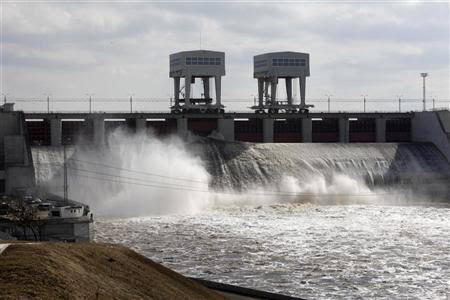Mozambique is embarking on a transformative journey in its energy sector, with an ambitious plan to overhaul its energy infrastructure and embrace renewable resources. At the heart of this endeavor is the Zambezi River, a vital natural asset that the country aims to harness for hydropower production. With projects like the Mphanda Nkuwa dam and expansions of existing facilities, Mozambique plans to add a staggering 14,000 MW of hydropower capacity by 2050.
This strategic move comes as Mozambique seeks to position itself as a key player in Africa’s energy landscape. By tapping into its abundant hydro resources, the country aims to boost economic growth and industrialization while also addressing pressing energy needs. The government recognizes that private investment will be crucial in realizing these ambitious goals, as it lacks the financial resources to fund the projects independently.
The Energy Transition Strategy outlines a phased approach, with an initial focus on expanding hydropower capacity by 9,000 MW by 2040. This expansion will not only bolster domestic energy security but also pave the way for Mozambique to become a major exporter of clean energy in the region. Additionally, the strategy emphasizes the importance of industrial parks powered by clean energy, offering opportunities for sustainable economic development.
In parallel with its hydropower initiatives, Mozambique is also ramping up efforts to diversify its energy mix. The country aims to add 7,500 MW of solar power and up to 2,500 MW from wind sources, tapping into its vast renewable energy potential. By integrating solar and wind energy into its grid, Mozambique seeks to enhance energy reliability and resilience while reducing its carbon footprint.
Decarbonization efforts extend beyond electricity generation to include measures such as promoting the use of liquefied natural gas and transitioning public transport to cleaner alternatives. By discouraging reliance on firewood and charcoal for cooking and heating, Mozambique aims to improve air quality and public health while advancing its sustainability goals.
Furthermore, the strategy underscores Mozambique’s commitment to expanding access to electricity, with a target of achieving universal electrification by 2050. By extending the electricity grid and investing in infrastructure, the government aims to ensure that all citizens have reliable access to affordable and clean energy.
Overall, Mozambique’s Energy Transition Strategy represents a bold step towards a more sustainable and prosperous future. By leveraging its natural resources and embracing renewable energy, the country aims to drive economic growth, enhance energy security, and mitigate the impacts of climate change. Through collaboration with the private sector and international partners, Mozambique is poised to emerge as a leading renewable energy hub in Africa.



